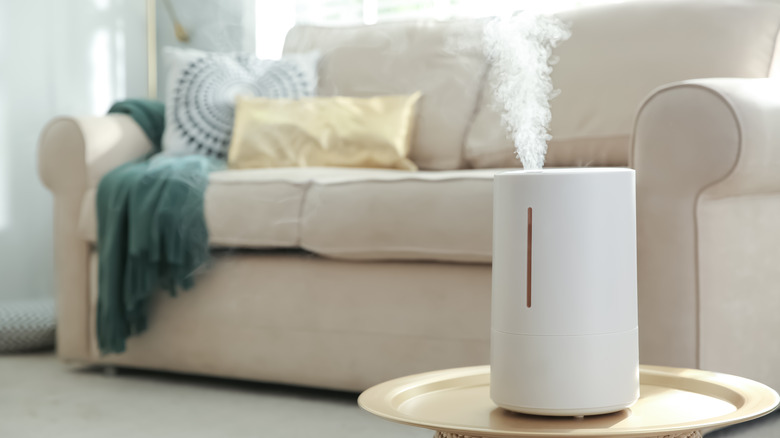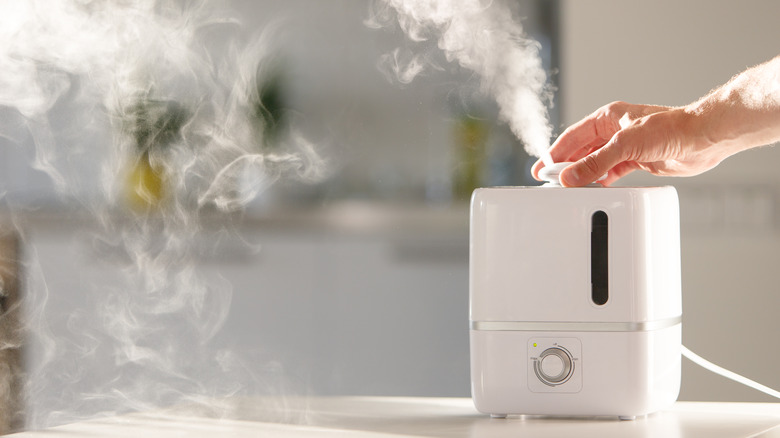Here's What An Air Purifier Can And Can't Do For You
Air purifiers are the must-have home accessory for 2021. Since the start of the pandemic, air purifiers — especially air cleansing devices — have become extremely popular. Healthline reports that air purifiers are a popular purchase due to concerns around air quality. A number of these concerns is linked to the fact that we are spending more time indoors than ever before.
As per Early Bird, research has shown that airborne diseases can be spread through pathogens floating in the air, and when one person in a house catches a flu, it's not uncommon for it to spread to the rest of the family. Studies suggest that this is because everyone is breathing in shared air that carries the bacteria or virus.
An air purifier may help to reduce the risk of airborne transmission of certain viruses and bacteria. Hence the popularity during the pandemic. However, while air purifiers might seem like a good solution to your concerns about air quality,they do have limited functionality. As per Good Housekeeping, air purifiers work by removing pollutants, allergens, and toxins from the air. While air filters are only able to remove particles, air purifiers are also able to sanitize them, cleansing the air further.
Like all products, air purifiers have a number of pros and cons — with that in mind, what can an air purifier do for you?
What can an air purifier do and what can't it do?
According to Healthline, the particles that a purifier is able to remove depends on the type of air purifier you choose. Different air purifiers contain different filters, with each filter type trapping different particle types as the air flows through them. Some air purifiers neutralize particles while others simply contain them.
For many people, air purifiers are used to remove allergens, mold, smoke, and other toxins from the air. They can also be used to help prevent related symptoms of allergies and asthma occurring in the first place. As per Healthline, while air purifiers do offer a range of benefits for cleaning the air within your home, the best results come from using a purifier with a combined filtering system.
Good Housekeeping reports that filters are usually made of paper, fiberglass, or mesh, and must be regularly replaced to continue to work effectively. While you can opt for single-use filters, you can also buy reusable filters. However, to work effectively these require careful care and cleaning. They also tend to work well at removing dust mites, pollen, and other larger particles from the air.
It's important to mind that despite the many benefits that air purifiers can offer, if you don't take steps to keep your home clean and free from toxins, allergens, and visible mold, the purifier may not work as effectively.

